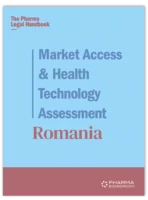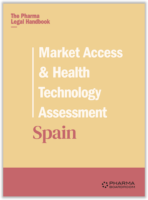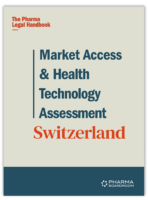HTA Decision Analysis Framework
Wenger Plattner / Switzerland
Join industry executives in staying informed on the market access and HTA process in Switzerland.
1. Which are the health technology assessment (HTA) evaluation bodies and their responsibilities in your country?
The National HTA program is overseen by the Health Technology Assessment Section (HTAS) of the HIBD (see above chapter II question 1). Further involved with the preparation and the decision-making process of the HTA dossiers are the Federal Medical Services Commission (FMSC; Eidgenössische Kommission für allgemeine Leistungen und Grundsatzfragen, ELGK) and the FDC.
HTA topics can be submitted to the HTAS by the public at any time (see link in chapter VI question 3). From all submissions, the HTAS choses, upon recommendation of the FMSC and the FDC, the topics for HTA review and opens a dossier for each topic that will undergo a HTA analysis.
In a pre-scoping procedure, the HTAS conducts a preliminary analysis and defines the questions to be investigated. After the pre-scoping, an external partner is commissioned in a tender process.
The external partner creates a protocol where the research questions and the methodology are defined in detail. Thereafter, the protocol is submitted to stakeholders, consisting of health insurance associations, patient organizations, industry associations or other interested parties for their comment. The protocol is published on the HTA projects page, available on https://www.bag.admin.ch/bag/en/home/versicherungen/krankenversicherung/krankenversicherung-leistungen-tarife/hta/hta-projekte.html (last visited on 19 January 2022).
In a next step, the external partner analyses the scientific evidence of the product in question and creates a report on its findings. The report must address the questions of efficacy, suitability and cost-effectiveness of the reviewed product. The report is submitted to a review group which evaluates the scientific quality of the report. The report is as well submitted to the stakeholders for their comments.
Finally, the report is appraised by the FMSC and the FDC. Theses to commissions submit a recommendation to either the FOPH, if the HTA concerns medicinal products, or otherwise to the FDHA. The FOPH or FDHA decide whether mandatory reimbursement of the product in question is continued, restricted or terminated.
2. Do regulators require HTA studies in your country?
HTA studies are not required by the FOPH but they are viewed as an important tool to base health policy-making on.
3. Do payers require HTA studies in your country?
The compulsory insurance companies do not require HTA studies to be conducted.
4. How are HTA assessments translated into pricing conditions in your country?
HTA assessments are not directly translated into pricing conditions, but they build the basis for the decision of the FOPH or FDHA regarding price adjustments of a medicinal product on the LS.
5. How are HTA assessments translated into reimbursement conditions in your country?
HTA assessments are not directly translated into reimbursement conditions, but they build the basis for the decision of the FOPH or FDHA regarding continuation, termination, or restriction of a medicinal product on the LS.
6. Which are the evaluation criteria, processes or models and analyses framework used for HTA in your country?
There is no framework published by official sources regarding the evaluation of HTA. There is, however, a published consensus paper on HTA in Switzerland (http://www.swisshta.org/index.php/Consensus.html), prepared by a group of several stakeholders, including the Swiss Medical Association, Interpharma (an association of Switzerland’s research-based pharmaceutical industry), the Swiss Academy of Medical Sciences and santésuisse (an association of around 40 Swiss health insurance companies) and the FOPH, whereby the latter had only an observer status. This consensus was presumably taken as a basis for the Swiss HTA program of the Federal Council which started in 2015.
Key points of this consensus include, inter alia, the clear separation of assessment, appraisal and decision-making as well as transparency of the process, the criteria and the decisions. Emphasis is further laid on a practice-oriented application of the principles of evidence-based medicine and on a consistent systematization of the three WZW-criteria of efficacy, suitability, and cost-effectiveness.
7. What is the methodology used in your country for HTA assessment?
No pre-determined methodology exists. For each HTA dossier, the methodology is defined individually by the external partner in the HTA protocol.
8. Which are the other decisions impacted by the assessed outcome in your country?
It is likely that providers or authorization holders of medicinal products and services will take note of the HTA results and can take them into account in their decisions regarding the production and distribution of their products on the Swiss market.
9. Does your HTA review or inquire other international HTAs during the assessment process? If so, which ones are the usual partners?
The Swiss HTA program engages with various national and international HTA networks, such as the Swiss Network for Health Technology Assessment, the European Network for Health Technology Assessment and the International Network of Agencies for Health Technology Assessment. The networks are used to share knowledge with other HTA agencies and to continuously develop HTA methodology.



































































